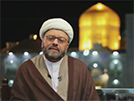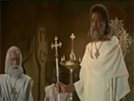Verse164
- Details
- Hits: 2419
(164) وَرُسُلاً قَدْ قَصَصْنَاهُمْ عَلَيْكَ مِن قَبْلُ وَرُسُلاً لَّمْ نَقْصُصْهُمْ عَلَيْكَ وَكَلَّمَ اللّهُ مُوسَى تَكْلِيمًا
164. " And earliear (there were) messengers We have already told you of, and messengers We have not told you of; and Allah spoke directly unto Moses a (peculiar) speech."
Commentary:
Suras Hud (No. 11) and Al-'Anbiya (No. 21), comparing other Suras of the Qur'an, are more inclusive in stating the stories of the prophets. In regard to learning good qualites, acquainting oneself with the history of the lives of prophets is so useful for men that Allah (s.w.t.) has paid to it, too. It says:
" ... messengers We have already told you of, ..."
The history of prophets, of course, is more abundant than what has been mentioned in the Qur'an. Neither the length of the life of a person is enough to listen to the whole history, nor listening to the whole history is necessary. But listening to it should be as much as to take example and to take lesson from it. This very thing shows that the Qur'an is a Book of guidance and teaching, not a Book for telling stories.
"... and messengers We have not told you of; ..."
However, the styles of recieving revelations are different, ispiration in heart, or sending down the angel, or revealing from behind the (urtain), and all prophets had been the addressee of Allah (s.w.t.), but among them only Moses (a.s.), as his epithet, was entitled /kalim-ul-lah/ ' The Interlocutor of Allah '.
"... and Allah spoke directly unto Moses a (peculiar) speech."
This title was given to Moses (a.s.) maybe for the reason that it was necessary for him to communicate repeatedly with Allah in order to struggle and work hard against Pharaoh, or against obstinacy and stubbornness of the Children of Israel.











